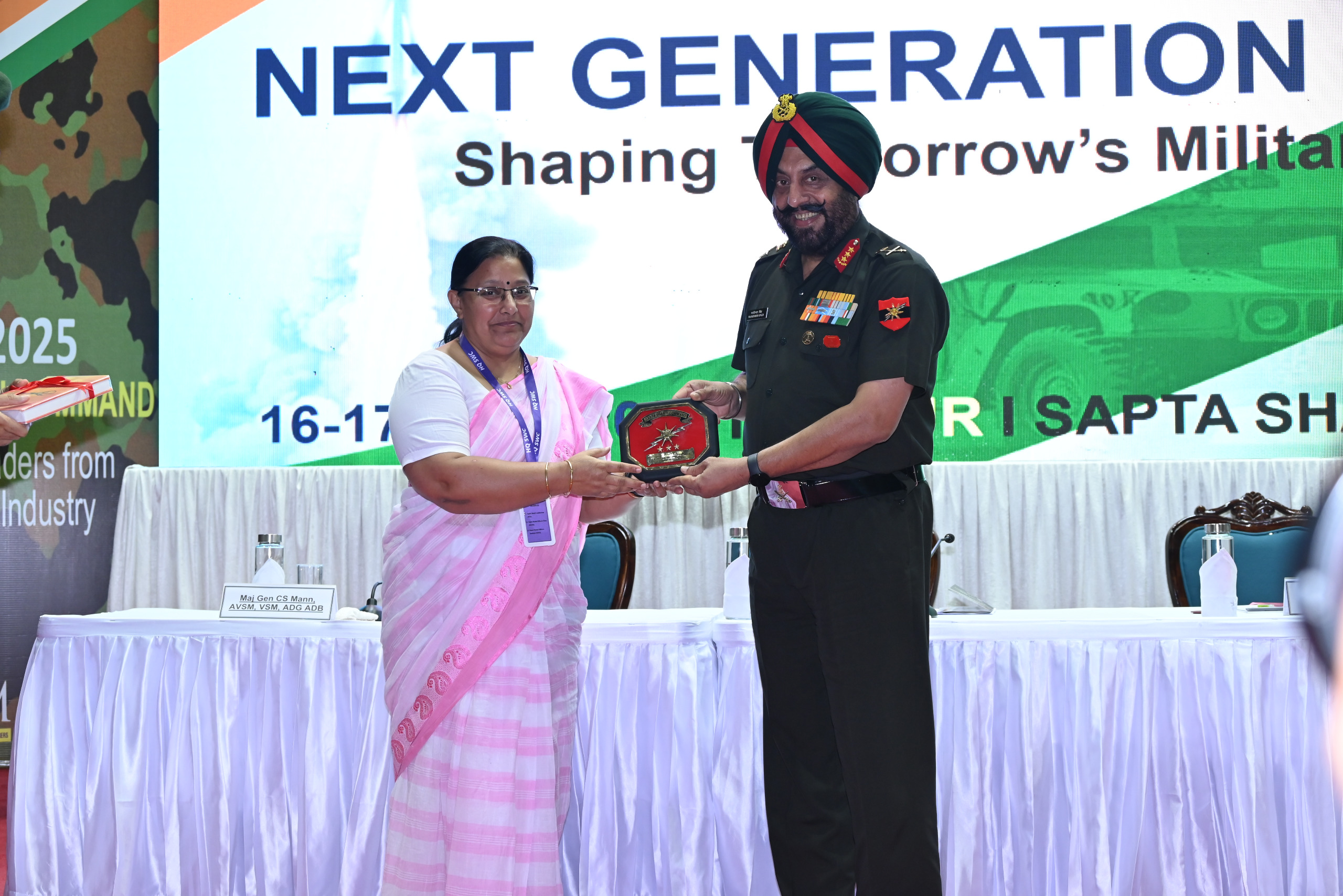
Jaipur : The second day of the technical seminar "Next Generation Combat - Shaping Tomorrow's Military Today" unfolded another engaging and insightful chapter. Building on the interactive foundation of first day, the sessions delved deeper into the pivotal role of advanced Science and Technology in shaping a strong, future-ready Indian Army which is an essential instrument of Comprehensive National Power in realizing the vision of 'Viksit Bharat'. It highlighted how India's journey towards achieving status of a developed nation is inextricably linked to its technological advancements.
Emphasising the rapid evolution of drone warfare, the speakers discussed future trends in Unmanned Aerial Systems (UAS).Stress was laid upon enhancing the focus on developing indigenous solar-powered drones for extended endurance and better stealth capabilities.
Industry representatives emphasized the strategic need to integrate Robotic Combat Systems (RCS) into both offensive and defensive operations. They envisioned RCS as vital members of combat teams, capable of autonomous movement, target detection and engagement, while maintaining strict human oversight for lethal actions. Discussions also covered the development of next-generation soldier systems, including self-healing fabrics, advanced lightweight armour with superior ballistic protection and adaptive camouflage materials that easily adjust to environmental conditions.ADG Army Design Bureau stressed the importance of strengthening unified defence innovation hubs. He cited the success of initiatives like iDEX and exhorted for a more integrated approach.
The seminar also focused on how advancements in Artificial Intelligence, big data analytics, advanced manufacturing (like 3D printing) and communication technologies, developed for civilian applications, can be seamlessly adapted and integrated into military systems.
The eminent speakers also focused on the growing threat of grey zone warfare and reiterated the need for the Indian Army to develop comprehensive capabilities to effectively counter these covert and unconventional challenges, which operate below the threshold of traditional conflict.
Lieutenant General Manjinder Singh, Army Commander, Sapta Shakti Command concluded the seminar by reaffirming Indian Army's unwavering resolve to embrace technological transformation as a cornerstone of its operational readiness. He articulated the vision of an agile, adaptive and technologically superior force, capable of deterring and decisively responding to any threat by infusing ‘Techno Commanders’ at all levels. He exhorted the emerging requirement of Joint Structures to ensure better coordination amongst all components of security forces. He emphasised that the seminar has served as a vital step in igniting the minds of one and all, to adopt this transformative path of a ‘Technologically Enabled Army’.
Overall, the seminar served as a crucial platform for intellectual exchange and laid the groundwork for future strategic initiatives aimed at equipping the Indian Army to counter future challenges.